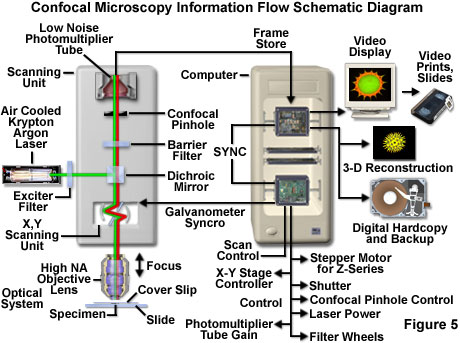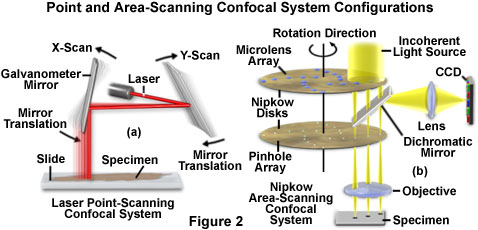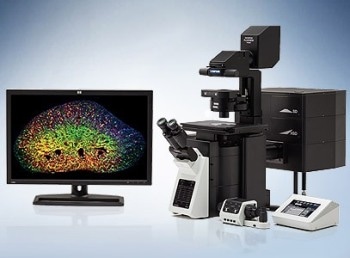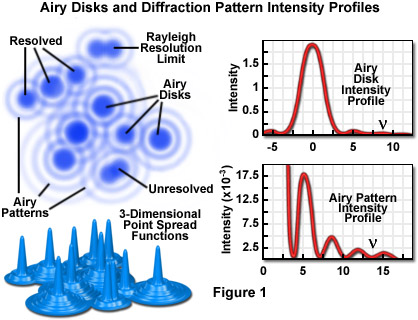Confocal microscopy most frequently confocal laser scanning microscopy clsm or laser confocal scanning microscopy lcsm is an optical imaging technique for increasing optical resolution and contrast of a micrograph by means of using a spatial pinhole to block out of focus light in image formation.
Laser scanning microscope max magnification.
The laser scans across the object and an image is built up pixel by pixel on a screen.
Separating light waves with lasers and with.
This feature is termed the zoom factor and is usually employed to adjust the image spatial resolution by altering the scanning laser sampling period.
The confocal laser scanning microscopes enable researchers to create detailed 3d pictures of cell organelles and to examine live cells through incubation systems that facilitate the study of cellular changes over time.
Clsm combines high resolution optical imaging with depth selectivity which allows us to do optical sectioning.
Fluorescent microscopy not only makes our images look good it also allows us to gain a better understanding of cells structures and tissue.
In some cases specimens should be sampled at more than 2 3 times the highest information frequency to allow for the possibility that the highest frequency was misjudged.
Capturing multiple two dimensional images at different depths in a sample enables the.
A confocal laser scanning microscope or also known as laser scanning confocal microscope is used to obtain high resolution images and generate 3d reconstructions through direct optical sectioning to provide clear images from a range of depths of thicker specimens for nanometer level imaging and measurement.
A scanning electron microscope sem produces a 3d image of a sample by bouncing electons off and dectecting them at multiple detectors.
A transmission electron microscope tem produces a 2d image of a thin sample and has a maximum resolution of 500000.
Pongali raghavendra thammineni pullaiah in advances in cell and molecular diagnostics 2018.
The confocal laser scanning microscope s aim was not to further increase magnification but to make clearer.
Additional advantages of scanning confocal microscopy include the ability to adjust magnification electronically by varying the area scanned by the laser without having to change objectives.
Relatively thick specimens can be imaged in successive volumes by acquiring a series of sections along the optical z axis of the microscope.
Laser scanning confocal microscopy laser scanning confocal microscopes employ a pair of pinhole apertures to limit the specimen focal plane to a confined volume approximately a micron in size.
It has a maximum magnification of about 100000.
Magnification image contrast laser intensity detector sensitivity flip rotate image line scan and area scan modes are user selectable includes laser scanning confocal microscope lscm controller controller cables galvanometer data communication power interlock and connector kit.




















